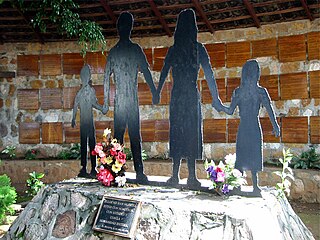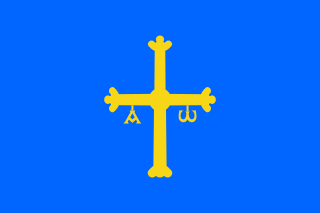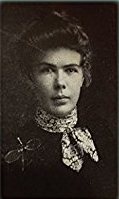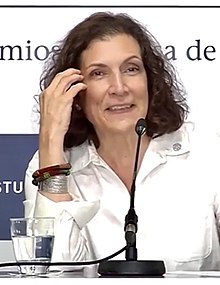
Úrsula Hilaria Celia de la Caridad Cruz Alfonso, known as Celia Cruz, was a Cuban singer and one of the most popular Latin artists of the 20th century. Cruz rose to fame in Cuba during the 1950s as a singer of guarachas, earning the nickname "La Guarachera de Cuba". In the following decades, she became known internationally as the "Queen of Salsa" due to her contributions to Latin music. She had sold over 10 million copies, making her one of the best-selling Latin music artists.

Gloria María Milagrosa Fajardo García, simply known as Gloria Estefan, is an American singer, actress, and businesswoman. Estefan is an eight-time Grammy Award winner, a Presidential Medal of Freedom recipient, and has been named one of the Top 100 greatest artists of all time by both VH1 and Billboard. Estefan's record sales exceed 100 million worldwide, making her one of the best-selling female singers of all-time. Many of Estefan's songs became international chart-topping hits, including "1-2-3", "Don't Wanna Lose You", "Coming Out of the Dark", "Turn the Beat Around", and "Heaven's What I Feel". Other hits include "Bad Boy", "Rhythm Is Gonna Get You", "Get On Your Feet", and "You'll Be Mine ".
Raymond Bonner is an American lawyer, journalist, author and bookstore owner. He has been a staff writer at The New York Times, The New Yorker and has contributed to The New York Review of Books; received an Emmy for a documentary he produced with Alex Gibney about the CIA's torture program for 9/11 suspects. He now an owner of a bookstore, Bookoccino, in Sydney, Australia.

Joan Didion was an American writer and journalist. She is considered one of the pioneers of New Journalism along with Gay Talese, Hunter S. Thompson, and Tom Wolfe.

Susan Meiselas is an American documentary photographer. She has been associated with Magnum Photos since 1976 and been a full member since 1980. Currently she is the President of the Magnum Foundation. She is best known for her 1970s photographs of war-torn Nicaragua and American carnival strippers.

The El Mozote massacre took place both in and around the village of El Mozote, in the Morazán Department, El Salvador, on December 11 and 12, 1981, when the Salvadoran Army killed more than 811 civilians during the Salvadoran Civil War. The army had arrived in the village on the 10th, following clashes with guerrillas in the area. The Salvadoran Army's Atlácatl Battalion, under the orders of Domingo Monterrosa was responsible for the massacre.

Mark David Danner is an American writer, journalist, and educator. He is a former staff writer for The New Yorker and frequent contributor to The New York Review of Books. Danner specializes in U.S. foreign affairs, war and politics, and has written books and articles on Haiti, Central America, the former Yugoslavia, and the Middle East, as well as on American politics, covering every presidential election since 2000. In 1999, he was named a MacArthur Fellow.
The Maria Moors Cabot Prizes are the oldest international awards in the field of journalism. They are presented each fall by the Trustees of Columbia University to journalists in the Western hemisphere who are viewed as having made a significant contributions to upholding freedom of the press in the Americas and Inter-American understanding. Since 2003, the prize can be awarded to an organization instead of an individual.

Elizabeth Kolbert is an American journalist, author, and visiting fellow at Williams College.

Daniel Alarcón is a Peruvian-American novelist, journalist and radio producer. He is co-founder, host and executive producer of Radio Ambulante, an award-winning Spanish language podcast distributed by NPR. Currently, he is an assistant professor of broadcast journalism at the Columbia University Graduate School of Journalism and writes about Latin America for The New Yorker.

Asturians are a Romance ethnic group native to the autonomous community of Asturias, in the North-West of the Iberian Peninsula.

Rufina Amaya was the sole survivor of the El Mozote massacre on December 11 and December 12, 1981, in the Salvadoran department of Morazán during the Salvadoran Civil War.
En Tus Tierras Bailaré is a Spanish-language viral video that celebrates love for the land and people of Israel. It appeared in April 2010.
Hispanic and Latino women in America have been involved in journalism for years, using their multilingual skills to reach across cultures and spread news throughout the 19th century until the common era. Hispanic presses provided information important to the Hispanic and Latin American communities and helped to foster and preserve the cultural values that remain today. These presses also "promoted education, provided special-interest columns, and often founded magazines, publishing houses, and bookstores to disseminate the ideas of local and external writers."

Mariana Enríquez is an Argentine journalist, novelist, and short story writer. She is a part of the group of writers known as "new Argentine narrative". Her short stories fall within the horror genre, and have been published in international magazines such as Granta, Electric Literature, Asymptote, McSweeney's, Virginia Quarterly Review and The New Yorker.
Alaíde Foppa was a Guatemalan poet, writer, feminist, art critic, teacher and translator. Born in Barcelona, Spain she held Guatemalan citizenship and lived in exile in Mexico. She worked as a professor in both Guatemala and Mexico. Much of her poetry was published in Mexico and she co-founded one of the first feminist publications, Fem, in the country. After her husband's death, she made a trip to Guatemala to see her mother and renew her passport. She was detained and disappeared in Guatemala City on 19 December 1980, presumed to be murdered. Some sources note the date of her disappearance as 9 December 1980.
Esther Allen is a writer, professor, and translator of French-language and Spanish-language literature into English. She is on the faculties of Baruch College and the Graduate Center, CUNY. Allen co-founded PEN World Voices: the New York Festival of International Literature (2004), and worked with PEN/Heim Translation Fund Grants from their inception in 2003 to 2010. Allen heads the Development Committee of the American Literary Translators Association, and serves on the board of Writers Omi, part of Omi International Arts Center, on the Advisory Council to the Spanish-language program at the CUNY Graduate School of Journalism, and on the Selection Committee for the French Voices translation subvention program of the Services culturels français.

Irene Aloha Wright was an American journalist and historian who wrote several books on colonial history in the Caribbean. Born in Colorado, she lived in Mexico, Cuba, and Spain, and was a distinguished writer and scholar.

Marcela Zamora Chamorro is a Salvadoran born-Nicaraguan documentary director and journalist. She has worked in El Salvador, Nicaragua, Mexico, Venezuela, and Cuba.
Colette Capriles is a Venezuelan political scientist. As a professor of political philosophy and social sciences at Simón Bolívar University, she served as Head of the Political Science Section. She specializes in the study of anti-liberal political thought and culture, and in Venezuelan politics. Capriles is a frequent media commentator and opinion columnist on these topics.














